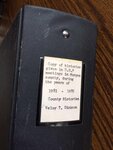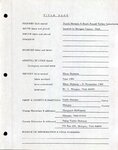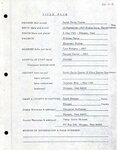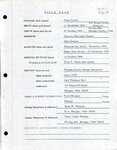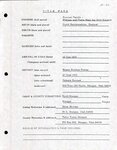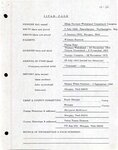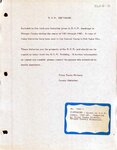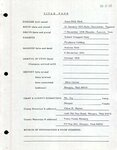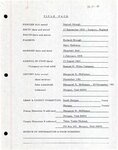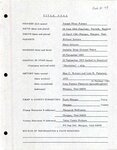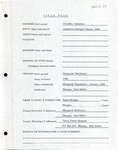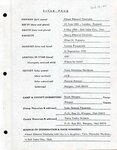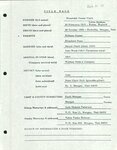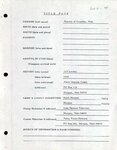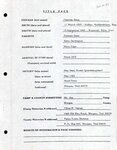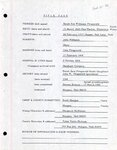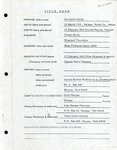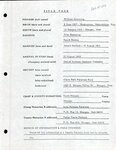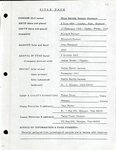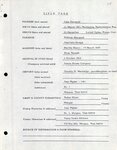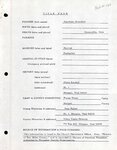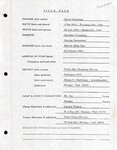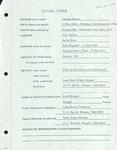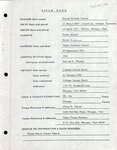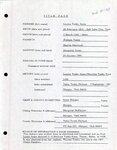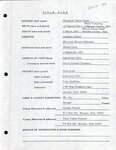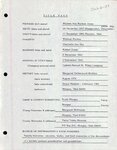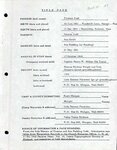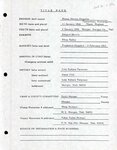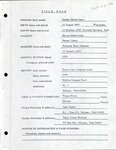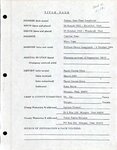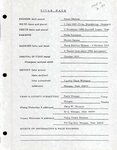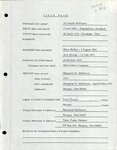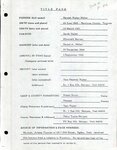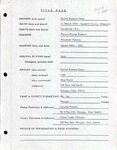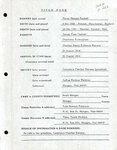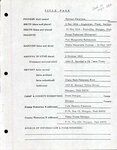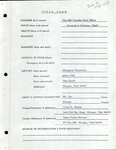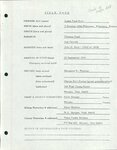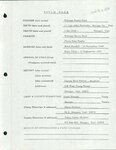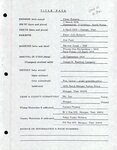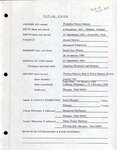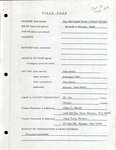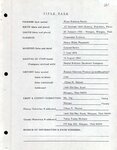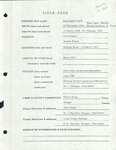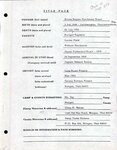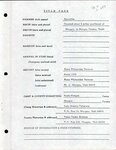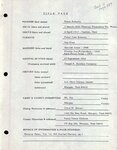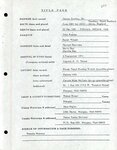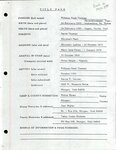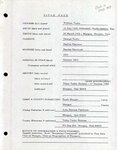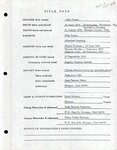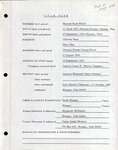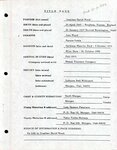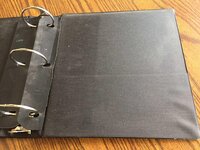| Title |
013_Pioneer Histories (DUP Book 10) |
| Creator |
Dickson, Veloy Tonks |
| Contributors |
Daughters of Utah Pioneers, Morgan County |
| Description |
In the early part of the 1900s Daughters of Utah Pioneers historians interviewed pioneers and their children and wrote or gathered the histories. |
| Biographical/Historical Note |
This book contains histories given in Daughters of Utah Pioneers Camps in Morgan County 1981-1985, and was compiled by Morgan County Daughters of Utah Pioneers Historian, Veloy Tonks Dickson. She submitted the completed histories to the Morgan County Pioneer Memorial Building as Museum Item No. 1985-1. (June 7, 1985). |
| Subject |
Morgan County (Utah)--History; Mormon pioneers; Mormons--Utah |
| Digital Publisher |
Stewart Library, Weber State University, Ogden, Utah, USA |
| Date Original |
1981; 1982; 1983; 1984; 1985 |
| Date |
1981; 1982; 1983; 1984; 1985 |
| Date Digital |
2017 |
| Temporal Coverage |
1840; 1841; 1842; 1843; 1844; 1845; 1846; 1847; 1848; 1849; 1850; 1851; 1852; 1853; 1854; 1855; 1856; 1857; 1858; 1859; 1860; 1861; 1862; 1863; 1864; 1865; 1866; 1867; 1868; 1869; 1870; 1871; 1872; 1873; 1874; 1875; 1876; 1877; 1878; 1879; 1880; 1881; 1882; 1883; 1884; 1885; 1886; 1887; 1888; 1889; 1890; 1891; 1892; 1893; 1894; 1895; 1896; 1897; 1898; 1899; 1900 |
| Item Size |
10.5x11.75 inches |
| Medium |
histories |
| Item Description |
3-ring loose leaf binder. This book contains over 380 pages and 52 Utah pioneer histories typewritten on standard rectangle sheets. |
| Spatial Coverage |
Morgan County, Utah, United States, http://sws.geonames.org/5778525/ |
| Type |
Text |
| Conversion Specifications |
JPG images were scanned with a Kodak PS50 scanner. Transcription using ABBYY Fine Reader. PDF files were created for general use. |
| Language |
eng |
| Rights |
Materials may be used for non-profit and educational purposes; please credit Morgan County Daughters of Utah Pioneers, Morgan, Utah. |
| Source |
Daughters of Utah Pioneers, Morgan County |
| Format |
application/pdf |
| ARK |
ark:/87278/s6e307ha |
| Setname |
wsu_mdupc |
| ID |
47859 |
| Reference URL |
https://digital.weber.edu/ark:/87278/s6e307ha |

